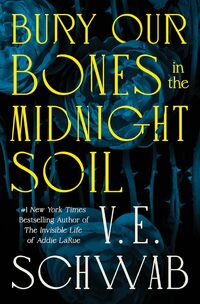There's an interesting phenomenon where Western culture assigns a special
mystique to Chinese characters. The symbols seem to contain a special power, a
mystical meaning. It's like a secret code and we all love secrets.
During the 17th and 18th century, Chinese design was
considered exotic and Western artists would copy the look of Chinese paintings,
ceramics and architecture. The art form was dubbed, "Chinoiserie" and sometimes
featured strange chicken scratch symbols that really weren't Chinese characters
at all.
The fascination continues today with people inking characters onto their skin
even when they can't read them, which of course leads to some amusing
misinterpretations!
The truth is - these characters do have power. There's an internal poetry to the
way that Chinese characters are composed. For instance, let's look at the
traditional character for love or ‘ai'.
 I've seen and heard it explained different ways.
Wikipedia states that ""Ai," the traditional Chinese character for
love (?) consists of a heart (?, middle)
inside of "accept," "feel,"
or "perceive," (?) which shows a
graceful emotion."
I've seen and heard it explained different ways.
Wikipedia states that ""Ai," the traditional Chinese character for
love (?) consists of a heart (?, middle)
inside of "accept," "feel,"
or "perceive," (?) which shows a
graceful emotion."
 From an explanation from a calligraphy master
Paul Wang is that the character depicts how "love breathes life into our hearts
and brings grace to our movements".
From an explanation from a calligraphy master
Paul Wang is that the character depicts how "love breathes life into our hearts
and brings grace to our movements".
Because language is thought and thought is language, intertwined and
inseparable, there's an internal poetry to Chinese culture and way of thinking.
This poetry can be hard to capture if you're not a speaker of Chinese (I
confess, I don't know Chinese.)
Sometimes the attempt to recreate this poetry can come out corny and fortune
cookie like.

But if done correctly, I think it taps into something emotional inside of us in
a way that's visual and visceral and inherently beautiful. We say a picture is
worth a thousand words. In some ways, a Chinese word is worth a thousand words.
In THE LOTUS PALACE
(8/27), this worship of the Chinese language is one of the themes that flows
throughout the hero and heroine's love affair. Bai Huang, the hero, comes from
a family of poets and scholars, though he himself is seen as a failure. He's
failed the imperial exams twice and now hangs out drinking and flirting with
courtesans in the pleasure quarter. The heroine Yue-ying is a maidservant who is
illiterate and thus locked out of this elite world.
How will the two find love when they in essence speak two very different
languages, divided by class, education and experience? The answer took me 95,000
words, but hopefully their struggle and their story encompasses some of the
beauty, grace and complexity of those thirteen strokes.
5 comments posted.
Your book has shot up to the top of my TBR list!! I have always been fascinated with Chinese culture, and have collected their artwork for a long time. They are a gentle, fascinating people, with a wonderful philosophy. I find their collectibles beautiful, and have been taken with their Hakata dolls. The one virtue that they live by is patience when you look at some of the intricasies of a lot of their pieces. Anyway, I am looking forward to reading your book. There aren't a lot of Authors who write about the Chinese people, and as soon as I see one who does, I snatch their book up in a New York minute!! I can't wait to read yours, and be taken away to another place on the other side of the world!! Thank you for a most enlightening posting, as well.
(Peggy Roberson 12:02pm August 17, 2013)
Your book sounds very good. This is what's wonderful about these contests...they give us a chance to discover authors and books we did not know before.
(Vennie Martinisi 11:31am August 18, 2013)
A new author and new book for the TBR list...can't wait. thanks for the contest.
(Barbara Studer 10:15pm August 18, 2013)


 © 2003-2025 off-the-edge.net
all rights reserved Privacy Policy
© 2003-2025 off-the-edge.net
all rights reserved Privacy Policy